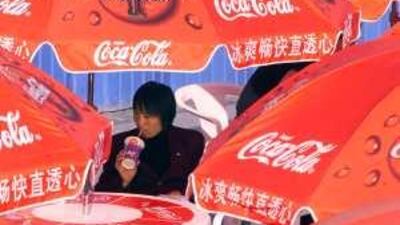Whatever ideology defines the future of the global economy, it won't be American-style neo-liberalism, Pankaj Mishra writes. In André Malraux's epistolary novel The Temptation of the West, a Chinese intellectual bluntly informs his European interlocutor: "Europe thinks she has conquered all these young men who now wear her garments. But they hate her. They are waiting for what the common people call her 'secrets'." In the 1920s, when Malraux first sensed the strength of nationalist and regionalist feeling in societies broken into by European empires, Japan had already begun to adopt the "secrets" of the West's great success; as it turned out, its long and brutal campaign to find resources for its industrialising economy managed to rid much of Asia of its white masters. In the tumultuous days of 2009, Malraux's insight into the limits of the West's "soft" and "hard" power seemed more prescient than ever; 200 years of western dominance has never appeared more like a short-lived phase in the long history of empires and nations.
The year began amid an intensifying economic crisis - the greatest since the Great Depression. It ended with a growing consensus that power had shifted, irrevocably perhaps, from the West to the East. Remarkably, the year still brought forth fresh illusions. A charismatic black president in the White House stimulated hopes among American and European elites that the United States could still "renew" what Barack Obama called its "moral leadership".
This leadership, always less moral than moralising, was mostly unchallenged since the end of the Cold War, thanks to the effects of a variety of American and international institutions from the Pentagon and the CIA to Nato and the G7. The Clinton administration had been particularly effective in using the World Bank, IMF, and the WTO to impose the "Washington Consensus" on countries in Asia and Africa - a regime of radical economic restructuring and financial deregulation that helped American corporations to further globalise their investment and trade.
Always fragile, this consensual international system was undermined by the Bush administration's arrogant unilateralism in the wake of September 11. The numerous fiascos of the "war on terror", foolishly conceived as a display of American firepower, not only alienated new and wary friends like Russia but also emboldened old enemies like Iran and North Korea, while China emerged as the main underwriter of the debt-driven American economy.
Many expected that Barack Obama would be a magical conciliator - seducing newly powerful rivals into becoming "responsible stakeholders" in an international system dominated, as before, by the United States. A year later, such hopes seem like little more than a new spin on the old boosterism about unstoppable globalisation on a flattened earth: a business-lounge version of the post-Cold-War triumphalism that held the victory of western liberal democracy and capitalism to be inevitable.
Today the Washington Consensus lies in tatters; whatever future form capitalism takes, it won't be American-style neo-liberalism. The rhetoric of Brazil's president, Luiz Inacio Lula da Silva - who denounced "white, blue-eyed bankers who appeared to know everything" for their role in the economic crisis - exemplifies a now-widespread contempt for the inept and grotesquely overpaid masters of the universe.
Lula's recent turn toward massive state spending on public welfare projects and neo-protectionist economic measures highlights a larger deglobalising trend, now visible from Latin America to Asia. It is no accident that Brazil, China and India - which kept their financial systems under tight control - have seen their economies spared the worst effects of the recession that has paralysed large parts of Europe and the US.
The discrediting of America's post-Cold-War economic ideology is paralleled by an overall diminishment of its political and moral authority. American concessions in talks on global warming did not prompt any generous offers from India and China, whose determination to protect their farmers from international competition has already scuppered the Doha trade negotiations. Dismissing American protests, Pakistan refuses to pursue Taliban leaders inside its borders. Even recently "liberated" Iraq demanded - and received - a timetable for the withdrawal of American forces. Meanwhile, Turkey has brought the curtain down on the Cold War in Asia by emerging as a fierce critic of its old ally Israel and building ties with Syria. Neither American tough talk nor postures of co-operation seem to have made any impression on Iran, not to mention Burma and Zimbabwe. North Korea remains intransigent, appeasable only with China's assistance; and the Middle Kingdom increasingly appears more influential in Africa than any western power.
Above all, China's nominally communist regime, remarkably stable and increasingly harsh, now poses a formidable challenge to the West - stronger and more calibrated than the one presented by radical Islamists. The Chinese Communists derive the legitimacy of their rule less from their promise of egalitarianism than from an aggressive nationalism rooted in carefully nurtured memories of humiliation by western powers. Expelled from their old social and political order, and denied dignity in a West-dominated world, aggrieved natives have long waited, as Malraux wrote, to beat the West at its own game. Their geopolitics of ressentiment will now shape the global landscape in ways that western policymakers and commentators have yet to imagine.
Pankaj Mishra's most recent book is Temptations of the West: How to Be Modern in India, Pakistan and Beyond.

